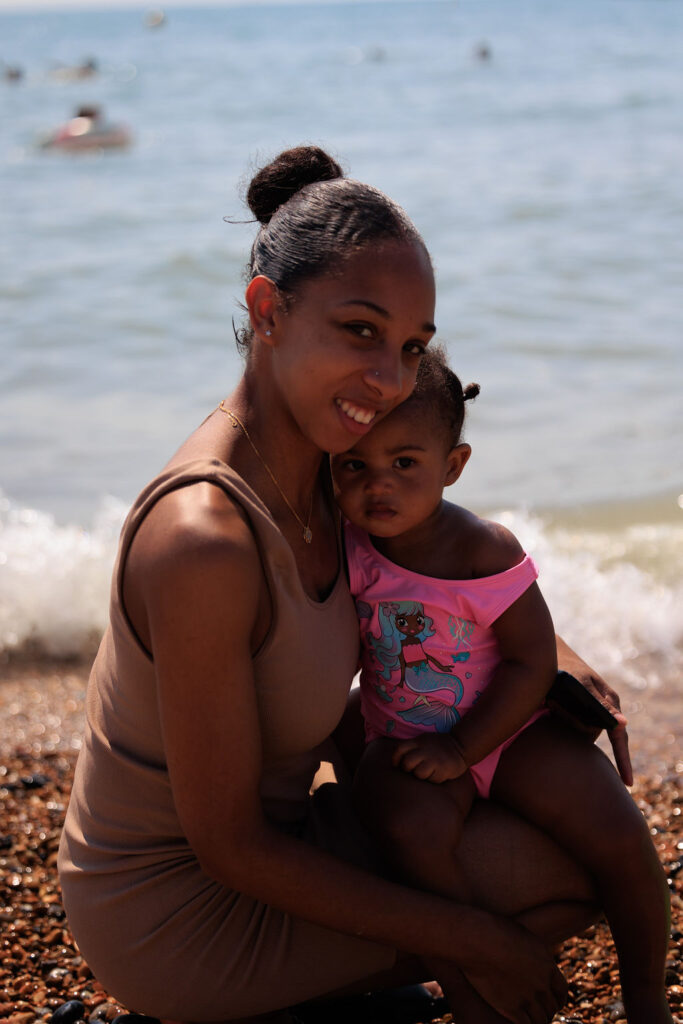Help with childcare costs
8 mins read
Help paying for childcare across the UK, including free childcare schemes and entitlements through the benefits system.
View content only relevant to your country:
In this article
Free childcare hours for pre-school children
In England
15 hours’ free childcare scheme
In England, all three- and four-year-olds are entitled to 15 hours of free early education/childcare for 38 weeks of the year.
Some disabled two-year-olds are also eligible for the 15 hours’ free childcare scheme. This includes any two-year-old receiving Disability Living Allowance (DLA) or who has an Education, Health and Care (EHC) plan.
A two-year-old from a low-income household also qualifies for 15 hours’ free childcare if their parents are either:
- In receipt of certain means-tested benefits.
- Not eligible for benefits due to their immigration status, but with limited income and savings.
Visit the government website Childcare Choices to check your eligibility and apply.
30 hours’ free childcare scheme for working families
Working families of children aged nine months – four-year-olds are entitled to 30 hours’ free early education/childcare for 38 weeks of the year.
Eligibility for the free childcare for working families offer
You are eligible if:
- You (and your partner where applicable) earn or expect to earn the equivalent to 16 hours at National Minimum or Living Wage over the coming three months. This currently equates to an average of £195 a week (or £2,539 over three months) for each parent over 21 years old. Amounts are lower for younger parents. This applies whether you are in paid employment, self-employed or on zero hours contract. If you work throughout the year but do not get paid a regular amount, you can average your earnings over the year instead.
- You (and your partner where applicable) are seeking the free childcare to enable you to work.
- You (or your partner where applicable) are on maternity, paternity, shared parental or adoption leave, or if you are on statutory sick leave.
Where one parent meets the income criteria and the other is unable to work because either:
- They are disabled
- They have caring responsibilities
- They are are assessed as having limited capability to work
then they are treated as though they are in paid work.
This also includes where one partner is eligible for Carer’s Allowance (including an underlying entitlement) or the carer element of Universal Credit.
Where you are in a “start-up period” (you are newly self-employed), you do not need to demonstrate that you meet the income criteria for 12 months.
When will I not meet the criteria?
You will not meet the criteria for the additional 15 hours if one or both parents have an income of more than £100,000.
If you are a person from abroad and because of your immigration status you do not have recourse to public funds, you can still apply for 15 hours free childcare for three-four year olds. However, you cannot apply for the additional 15 hours for working families.
Some low income families with no recourse to public funds can get 15 hours free childcare for a two-year-old. This will depend on the exact type of immigration status you have. Seek more detailed advice.
What happens if I lose eligibility?
You will receive a “grace period” – this means you will be able to keep your childcare for a short period.
Once the ‘grace period’ has lapsed, you should be entitled to the universal 15-hour entitlement.
Applying for the 30 hours’ free childcare scheme
Apply for the scheme by the gov.uk website, where you can set up your childcare account. You’ll need to reconfirm your eligibility every three months.
You can also find out more from Childcare Choices.
Using the free childcare hours
You can split free childcare hours between more than one childcare provider. This can include not only nursery classes and private nurseries, but also playgroups and childminders.
However, individual childcare providers don’t have to offer free places. Some have decided not to take part in the scheme.
In Northern Ireland
Northern Ireland has a programme of free pre-school education aimed at children in the year immediately before they enter primary one. You will need to apply for a place for your child.
Check the admissions criteria for each pre-school education setting you are applying for so you can show how your child meets them. Applications close in January.
You can find more information on how to apply from the NI Direct website.
In Scotland
In Scotland, all three and four-year-olds are eligible for 1,140 hours of free early education (30 hours a week if term-time only or 22 weeks if spread over the full year). Some two-year-olds are also eligible – for example, where a parent receives certain means tested benefits or where a two-year-old lives with kinship carers.
Depending on your local authority, you may be able to split these hours between more than one childcare provider.
To find out how to claim, visit your local council’s website to find out what is available in your area. Visit the Scottish government’s website for more information.
In Wales
In Wales, all working parents of three and four-year-olds are eligible for 30 hours of free childcare or early education. You must earn at least the National Minimum Wage or Living Wage for 16 hours a week on average. You will also have to meet certain other criteria.
In some parts of Wales, the Flying Start scheme offers free part-time childcare for two and three-year-olds.
Contact your local Family Information Service for more information about what childcare schemes are available in your area, and how to apply.
Childcare costs and Universal Credit
Under Universal Credit, you can also get help with any registered childcare costs you pay in order to work.
Your Universal Credit claim can include childcare costs so long as you do some paid work. It doesn’t matter the number of hours. If you are a couple, you must both work or one of you must work and the other partner must be unable to provide childcare, either because they provide regular and substantial care for a severely disabled person or because have a limited capability to work due to their own health problems.
You can get up to 85 per cent of your costs met. The maximum amount of help you can get with childcare costs via Universal Credit is £1031.88 a month for one child or £1,768.94 a month for two or more children.
Tax-Free Childcare scheme
There is also a Tax-Free Childcare scheme for working families. The scheme helps with childcare costs for children who haven’t yet reached the September after their 11th birthday. (The September after their 16th birthday for a disabled child).
Despite its name, this new system has nothing to do with the tax system. Instead, parents can open an online account, which they will use to pay for registered or approved childcare. For every £8 you pay into your child’s account, the government will add a top-up payment of £2.
Normally the maximum that the government will contribute is £2,000 per child per year, assuming you contribute £8,000. For disabled children, the maximum government contribution increases to £4,000 per year, assuming the parent contributes £16,000.
Warning! If you access Tax-Free Childcare, you cannot get Universal Credit. This means all of your Universal Credit payments stop, not just any payments you get towards childcare. In most cases you will be better off getting Universal Credit. Make sure you get advice before applying for Tax-Free childcare.
Who is eligible?
To qualify, you must be working and have earnings that are at least equivalent to the national minimum wage x 16 hours.
If you are a couple, you must either both be working and have earnings of this level or one of you must have earnings of that level and the other partner be in receipt of certain disability benefits or carer’s benefits such as Carer’s Allowance.
In looking at whether you earn enough to qualify, the government assess your average earnings over a three-month period. This means someone aged 21 or over should be eligible so long as their earnings over a three-month period are at least £2,579.
Employer-supported childcare
Some employers offer support with childcare costs by either offering workplace childcare or by offering childcare vouchers so that an employee can buy registered or approved childcare. This is often via a “salary sacrifice scheme”, whereby an employee agrees to accept lower earnings in return for assistance with their childcare.
Tax-Free Childcare replaces new applications for childcare vouchers via a salary sacrifice scheme. If you are already using childcare vouchers and have the same employer, you can either continue to use them, or you can change to Tax-Free Childcare. However bear in mind that if you move onto Tax-Free Childcare you will also have to give up any tax credits or Universal Credit that you receive.
Help from social services
You may also wish to approach your local authorities’/trust’s social care department to see if they will offer support to help you juggle work and caring. This could be by organising alternative childcare or providing direct payments towards additional childcare costs.
When assessing your needs as a carer, they should consider the impact that caring has on your ability to continue in employment or move into work.
Related information

Finding childcare
Good quality childcare can benefit both parents and children. Find out more on making more formal childcare arrangements.
Read more
Early years support
We're here to help you, your family and your child through the early years of their life.
Read more
Benefits
You may be entitled to certain benefits and tax credits that may help with the extra costs you face.
Read more